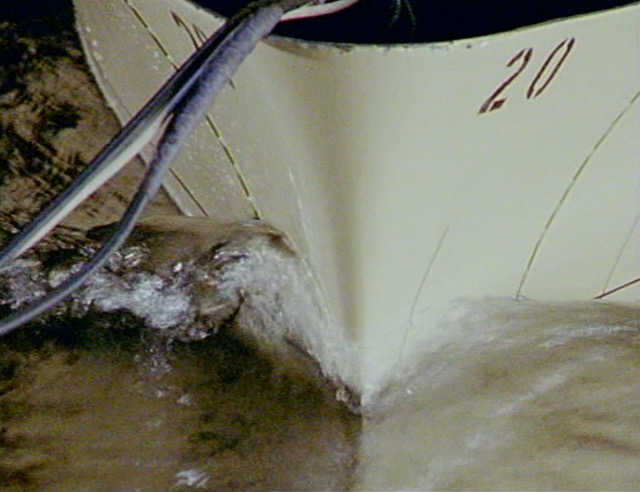CALL FOR PARTICIPANTS: Black Atlantis/Double Hydrologics ~ a special DAI-week session with Ayesha Hameed and Doreen Mende on Saturday April 22
Harun Farocki, Images of the World and the Inscription of War, 1988, 63.32min
Black Atlantis / The Navigation Principle / Double Hydrologics
A work session on Saturday April 22, 2017 (starting at 14:00), with Ayesha Hameed and Doreen Mende:
This session offers DAI-students in-depth preparation for Roaming Assembly#13 THE NAVIGATION PRINCIPLE (convened by Doreen Mende) on Sunday, April 23 at Huis Oostpool.
Alumni are also most welcome to join and DAI can offer some help in order to realize their participation.
Prospective students and other interested members of the public are welcome to join as well. A rewarding way to familiarize yourself with ways of working and thinking practised at the DAI.
Please contact Peter Sattler at peter@peterkristinn.com to confirm your participation (students should know that it is fine to briefly leave the session for face to face meetings (max two)).
The work-session aims to activate a vocabulary for speaking about seascapes as a political, historical and economic substance. Its liquidty holds the fluid inscriptions of narratives about slavery, global trade and its long durées into the contemporary condition on the open sea. What does it mean to 'think with water' (Neimanis) then? Why is it helpful? What does it provide? We will start the session by entering the threshold between land and sea, particularly at the beach. It considers the meditative quality of being on the shore and consequently the role of memory in this context (Back/Taussig). It also considers the development of seaside property, of gentrification and consequently of lost spaces. We will also consider how the sea acts as a border as well as how the sea is imaged in this context – by migrants trying to cross the border on one hand, and by border control agents who surveil the ocean in an attempt to prevent this crossing. Furthermore, we will engage in ways of 'thinking with water'. The reading aims to tackle a hydrologics in a double sense as “The flows of global power meet the flows of biomatter.” (Neimanis) Social media tracks data primarily from the question 'what are you doing?'. But thinking takes more time. Thinking sometimes struggles to find the right words. Thinking is vulnerable. Thinking desires the safe space of a group. What happens to knowledge production in the human / non-human constellation? How can we link the eco-feminist approach to algorithmic liquidity, after all? Does it makes sense to connect these two strands activating a double hydrologic as a main condition for the Navigation Principle?
The session requests preparatory readings of texts.
Required Readings:
Les Back “Beaches and graveyards: Europe's haunted borders”, Postcolonial Studies, 12:3, 329-340 (2009). https://www.academia.edu/1515465/Beaches_and_Graveyards_Europes_hanuted_Borders
S. Ayesha Hameed, "Black Atlantis: Three Songs", in Eyal Weizman (et al.), Forensis. The Architecture of Public Truth, 2014, pp. 712–719. PDF will be made available by Peter Sattler.
Esther Leslie, "Liquid, Crystal, Vaporous: The Natural States of Capitalism", in: Kennan Ferguson and Patrice Petro (eds.), After Capitalism: Horizons of Finance, Culture, and Citizenship, 2016, pp. 151-166. PDF will be made available by Peter Sattler.
Astrida Neimanis, "Hydrofeminism: Or, On Becoming a Body of Water", in: Henriette Gunkel, Chrysanthi Nigiann, Fanny Söderbäck, Undutiful Daughters, New Directions in Feminist Thought and Practice, 2012, pp. 85–99. https://www.academia.edu/1970757/_Hydrofeminism_Or_On_Becoming_a_Body_of_Water._
Further Readings:
Donna Haraway, "Anthropocene, Capitalocene, Plantationocene, Chthulucene: Making Kin", 2015, in Environmental Humanities, vol. 6, 2015, pp. 159-165. http://environmentalhumanities.org/arch/vol6/6.7.pdf
Michael Taussig, “The Beach (a Fantasy)”, Critical Inquiry, 26, 2 (2000), pp. 250–77. http://www.thefreeseas.org/wp-content/uploads/2015/07/Taussig-TheBeach-A-Fantasy.pdf
Lorenzo Pezzani, “Between Mobility and Control: The Mediterranean at the Borders of Europe” in Antonio Petrov (Ed.) New Geographies, 5: The Mediterranean. Harvard: Harvard University Press, 2013.

